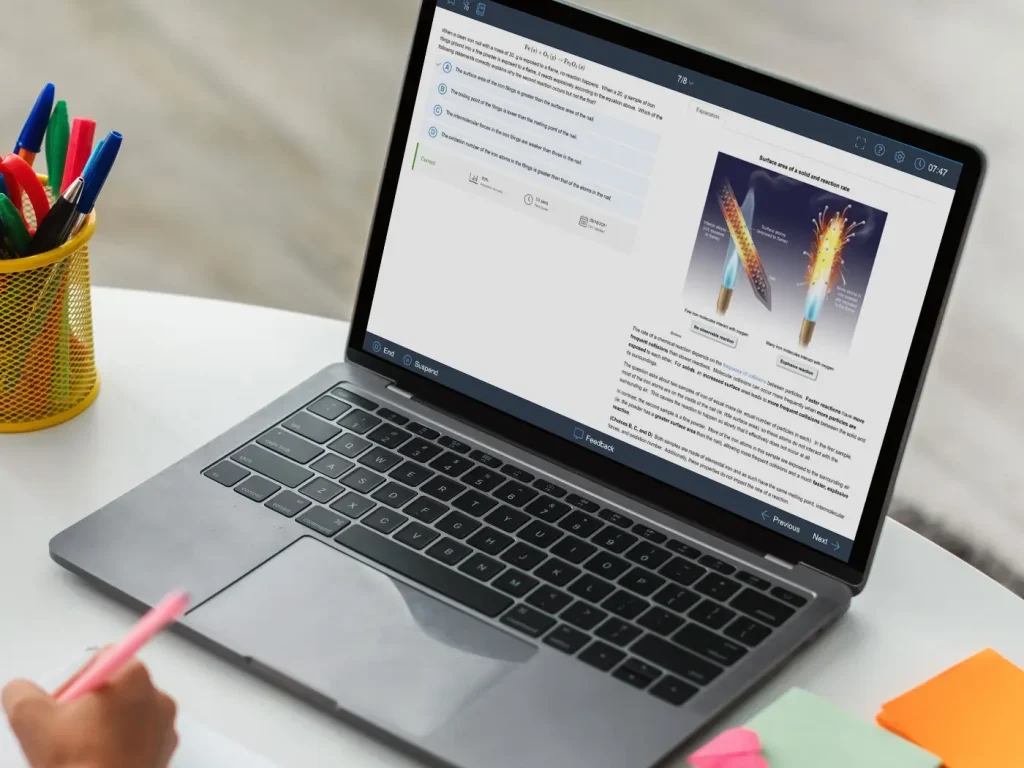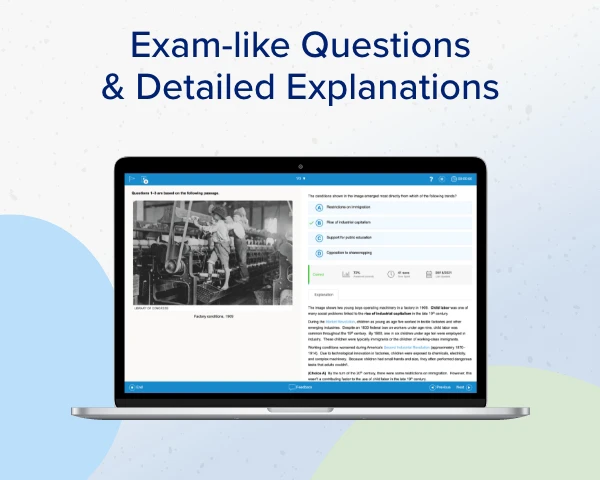How to Find the Right AP® Teacher Community for You
Most people have heard the old saying, “It takes a village to raise a child.” It’s also true that it takes a village to educate a child. It takes many people working together to help each and every student succeed. AP® educators need villages to succeed, too. Just like the students they support, teachers thrive when they are supported by each other. This is the very reason it is important to find support within AP teacher community groups.
Finding Support with an AP Teacher Community
Online teacher support groups give AP teachers a place to connect with their professional peers, vent about their struggles, and work with other AP educators to solve problems. They provide a wide range of resources, like lesson plans, activities, and assessments. They even provide memes for teachers who just need to laugh at a funny joke only AP teachers would understand. When teachers connect with each other, it opens up an opportunity to help strengthen their skill sets and learn something new. AP teacher community groups are a means to learn about the latest trends in AP education and stay on top of educational news.
The number of AP teacher groups is seemingly endless. In addition to the official AP teacher communities set up by the College Board®, there are many AP teacher community groups on social media sites like Facebook and forums like Reddit. Twitter, Instagram, and Pinterest have several groups as well. Some groups are for Advanced Placement® education in general, but many communities are specific to individual AP subjects. Additionally, there are communities for AP coordinators and administrators to find information and support. These communities offer a wide range of resources, such as discussion forums, libraries of resources, and chances to work with other educators.

How to Search for an AP Teacher Community
Whether online or in-person, joining an AP teacher community can help AP educators engage with peers who understand the unique challenges and opportunities of teaching AP. One way to search for these teacher support groups is through social networks like Reddit and Facebook, where you can join AP teacher community groups specific to your subject area. You can also check out Instagram, Twitter Chats, and Pinterest to find more resources and discussion boards. Ask questions, share your own ideas, and take part in discussions in these groups. By connecting with other AP teachers, you can find support, resources, and inspiration to help you and your students succeed.
While online AP teacher communities offer an easy way to connect with other educators, there's also value in forming offline connections with AP professionals. One way to search for an offline AP teacher community is by reaching out to your school's AP coordinator so they can connect you with other local AP professionals. You can also meet other AP teachers at professional development events like AP Summer Institutes and conferences.
Joining subject-specific groups like the National Science Teachers Association or the National Council of Teachers of English is another great way to network in AP education. These groups often offer resources and chances to learn from other AP professionals. By making these connections in person, you can learn useful things, share lesson activity ideas, and get help from colleagues who know how hard it is to teach AP.
Well-Known AP Teacher Support Groups
Clearly, AP teaching communities are a great way for educators to connect, collaborate, and share resources with other AP teachers. Here's a brief overview of some well-known online AP teacher support groups:3
- AP Teacher Groups on Facebook: These Facebook groups are dedicated to AP teachers and administrators and provide a space for members to share ideas, ask questions, and connect with other educators.
- Reddit AP Teacher Subs: These subreddits are places where AP teachers post questions and share resources, ideas, and experiences related to teaching AP courses.
- Twitter Chats: Twitter chats like #APChat provides a real-time platform for AP teachers to connect and share best practices.
- Instagram AP Teacher Group Profiles: These groups bring multiple accounts together to share subject-specific resources and inspiration, as well as lighthearted memes and humor.
- Pinterest AP Teacher Community Boards: AP teacher community boards offer a visual platform for educators to discover and share AP-specific teaching resources.
Sharing Resources and Advice with an AP Teacher Community
The chance to share resources and ideas with other teachers may be the best thing about being a part of an AP teacher community. Many AP teaching groups have discussion forums or resource libraries where educators can share materials and ideas. Some groups also have collaborative tools that allow for real-time discussions, or the ability to edit and share documents. Of course, it's important to respect other people's intellectual property by giving credit where credit is due and asking permission before using or changing someone else's work.
Online teacher groups are also a good place to ask questions and get help from people who work in the same field. Once you're a member of an AP teacher community, you can start asking questions and seeking advice from others. You can also search a community for previously asked questions or discussions on topics that interest you.

Creating and Leading AP Teacher Groups
Creating and leading an AP teaching community can be a great way to connect with other AP educators while also giving back to the AP community. To start an AP teacher group, an educator must first choose a platform and build up their page, board, or discussion group to their liking. They might choose to create a private Facebook group, a subreddit, or even a Pinterest board. Once they have decided on a platform, they can invite other AP teachers to join their community and start sharing resources and ideas.
Consistency is key to a group’s success, so leaders should be active and responsive. They should try to get group members involved and talking to each other, encouraging people to share their ideas and ask questions. Leaders of an AP community might also want to host virtual meetups or webinars to help more people work together and talk. Creating and leading an AP teaching community can help you develop your leadership skills and give back to the AP teaching community as a whole.
A Note About PLCs
We can't discuss AP teacher community groups without also mentioning professional learning communities (PLCs). Although traditional PLCs are not found on social media sites or in other online communities, they do play an important role in supporting AP educators through in-person data and content discussions. PLCs are simply groups of educators who work together to share knowledge and discuss strategies for student academic success.4 Most teachers participate in formal PLC meetings on-campus with other teachers in their grade-level content team. Vertical PLCs, however, include teachers in the same content area but from different grade levels.5 AP teachers can also create their own PLC groups on their school's campus. During a PLC, teachers can look over student data, set goals, and discuss instructional strategies for the classroom.
Key Takeaways
Teaching AP courses is rewarding, but it’s also hard. Finding teacher groups, either online or in your own school district, can be a great way for AP teachers to get support, teaching materials, and ideas. These communities help AP teachers connect with other people in the AP education community, which is an invaluable way to improve their skills and reach their full potential.
References
- Knology. (n.d.). How interactions in online teacher communities benefit the classroom. Knology. Retrieved April 25, 2023, from https://knology.org/article/classroom-practice-and-teacher-communities/
- AP community. AP Community – AP Central | College Board. (n.d.). Retrieved April 25, 2023, from https://apcentral.collegeboard.org/professional-learning/ap-community#:~:text=The%20AP%20Teacher%20Community%20is,and%20share%20classroom%2Dready%20materials.
- Potash, B. (2021, June 8). Teacher Facebook groups you'll want to join today. We Are Teachers. Retrieved April 25, 2023, from https://www.weareteachers.com/teacher-facebook-groups/
- Renaissance. (2023, March 15). 4 misconceptions about the science of reading. Renaissance. Retrieved April 25, 2023, from https://www.renaissance.com/2020/09/20/blog-what-is-a-plc/
- How to create a vertical professional learning community. teachnews.gr. (n.d.). Retrieved April 25, 2023, from https://teachnews.gr/ekpaideftika-nea/item/1821-how-to-create-a-vertical-professional-learning-community